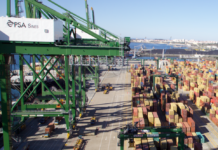
Despite the recent rally of benchmark oil prices and bunker indexes on vaccine rollout news, demand recovery is still uncertain as Covid-19 infection rates continued to rise sharply in the US and Europe, according to Marine Bunker Exchange (MABUX).
Additionally, many countries are considering more strict restrictions over the Christmas holidays, which may reduce fuel demand in the near-term outlook.
However, the World Bunker Index MABUX continued firm upward evolution over a week. The 380 HSFO index rose to US$338.99/mt, VLSFO gained US$13.00 reaching US$419.00/mt, while MGO increased to US$481.99/mt.

The global scrubber spread (price difference between 380 HSFO and VLSFO) has also demonstrated a widening trend; it has risen by US$6.68 and averaged US$78.32. At the same time, the growing price differential between 380 HSFO and VLSFO makes scrubbers a little more attractive again.
The correlation of weekly MBP Index (Market Bunker Prices) vs weekly DBP Index (Digital Bunker Prices) in the four largest hubs over the past week showed that 380 HSFO fuel still remains undervalued slightly in Rotterdam, while, in Singapore, Fujairah and Houston, this type of fuel remains overvalued.

VLSFO fuel also remains slightly overpriced in all selected ports. Meanwhile, for the first time, it was registered a 100% correlation between weekly MBP and DBP indices in Singapore. The MGO LS, in turn, was undervalued in all ports, with the exception of the Houston port.
Ships sailing through the Arctic region’s busiest lane along the Siberian coast made the highest number of trips on record this year as a quicker-than-expected melting of ice enabled more traffic, according to MABUX weekly outlook.
There were 62 transits through the Northern Sea Route in the period to 9 December, versus 37 for the whole of 2019. The number of ships using the route rose to 331 vessels in the year to date, versus 277 for the whole of 2019.

The European Union may seek to end the tax exemption for bunker fuels. At the same time, the European Commission said, aviation and shipping should be given “priority access to additional renewable and low-carbon liquid and gaseous fuels, since there is a lack of suitable alternative powertrains in the short term”.
These fuels could include hydrogen, hydrogen-based synthetic fuels and advanced biofuels. The European Community Shipowners’ Associations (ECSA) in turn has opposed the European Commission’s proposal by saying that all forms of marine energy should remain free from taxation.




